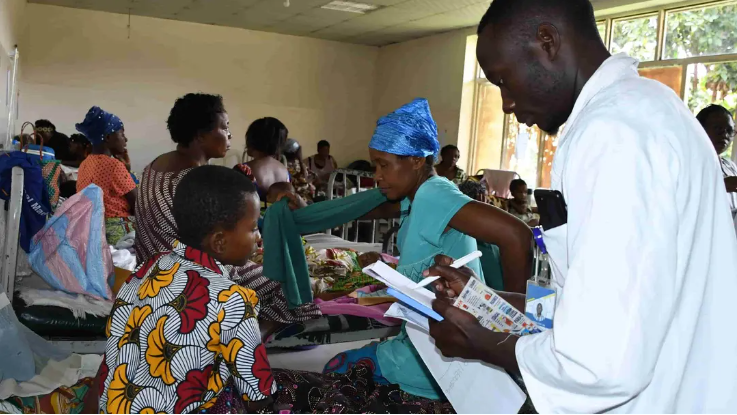Study: Over 800M Adults Worldwide Have Diabetes
According to a study published in The Lancet on Thursday, more than 800M adults globally had type 1 or type 2 diabetes in 2022 — over four times the 1990 figure — primarily driven by rising cases in low- and middle-income countries....
0:00
/1861
Facts
- According to a study published in The Lancet on Thursday, more than 800M adults globally had type 1 or type 2 diabetes in 2022 — over four times the 1990 figure — primarily driven by rising cases in low- and middle-income countries.[1][2]
- The 2022 figure is nearly double the earlier World Health Organization estimate of 422M. In rich nations like Japan and Canada, the rate of diabetes either remained stable or had fallen. India topped the list with about 212M diabetes cases.[3][4][5]
- Published on World Diabetes Day, the study found about 450M adults with diabetes who were age 30 and above (or 59%) remained untreated — 90% of them in low- and middle-income countries — and 5%-10% of sub-Saharan adults with diabetes received treatment.[6][7]
- Type 2 diabetes, often linked to obesity and poor diet, is believed to account for most adult cases, although the study didn't distinguish it from type 1 diabetes — which is caused by insulin deficiency and is more challenging to treat.[4][3]
- This comes after a study published last June predicted that the number of people living with diabetes would touch 1.3B in 2050 due to structural racism and inequality. The 2022 study is the first to consider the rates and treatment estimates for all countries.[8][9]
- Prof. Majid Ezzati, a senior author of Thursday's study, cited global inequalities to emphasize that 'people with diabetes tend to be younger in low-income countries' and face various risks, including amputation and 'in some cases, premature death.'[10]
Sources: [1]The BMJ, [2]Imperial News, [3]Emirates24, [4]RFI, [5]Indiatimes, [6]WHO, [7]TimesLIVE, [8]The Straits Times, [9]Reuters and [10]Guardian.
Narratives
- Narrative A, as provided by Guardian and Guardian. Diabetes is an insidious global threat. Rising obesity, urbanization, and the high cost of healthy living fuel an unprecedented surge in type 2 diabetes, especially in poorer countries. Many face diets dominated by affordable, highly processed foods while struggling to afford better choices, with climate change worsening food insecurity. Access to diagnosis and treatment is also often limited — leaving millions undiagnosed or untreated and bringing heavy personal and economic burdens.
- Narrative B, as provided by South China Morning Post. With over 800M people now living with diabetes worldwide, a bold shift in treatment is overdue. Rather than the current one-size-fits-all prescriptions, a personalized, precision-based approach — tailoring medications to each individual's unique genetics and underlying causes — is essential. This strategy promises better health outcomes and reduced costs, empowering healthcare systems to address the root causes of diabetes and to meet the diverse needs of patients.







